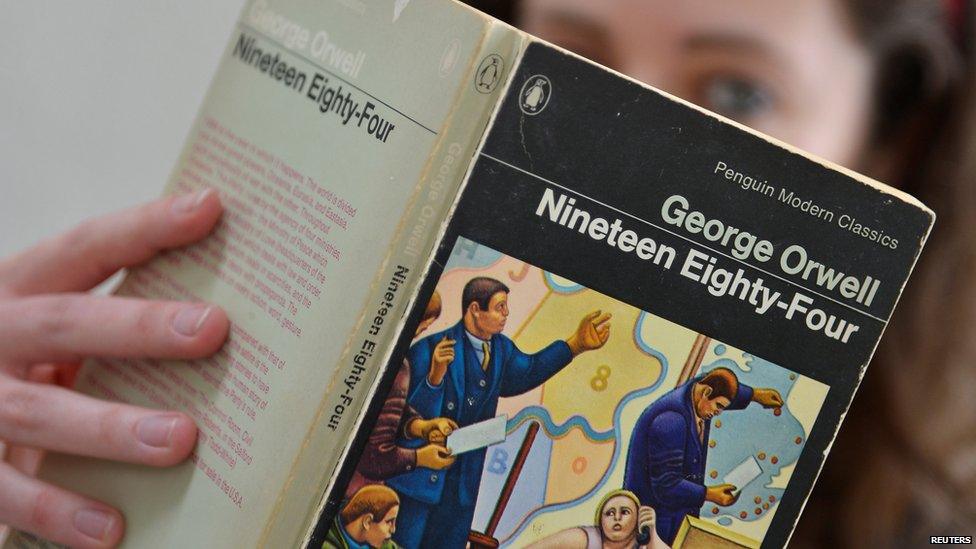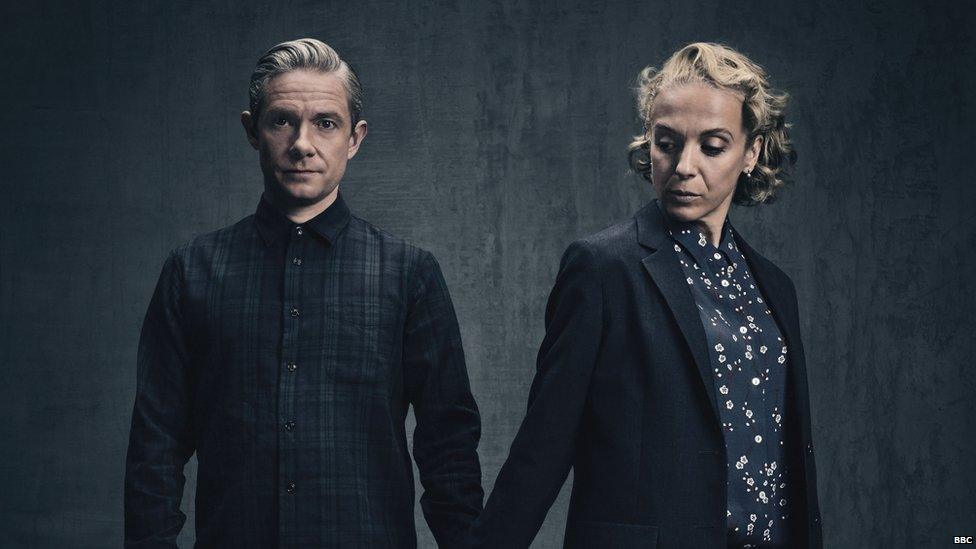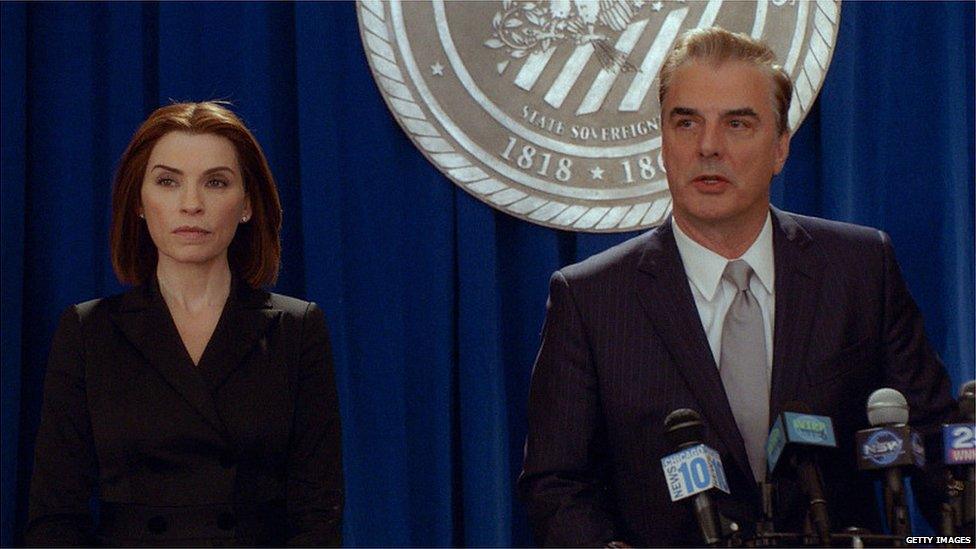How Sherlock, Homeland & Orwell predicted CIA spying
- Published

Thousands of documents detailing the ways the CIA gets its intelligence have been published by Wikileaks.
They include allegations that the US spy agency hacks into smartphones and smart TV microphones to get information.
The CIA has not confirmed whether the documents are real.
But what we do know, is that these techniques have been described on TV shows, films and books for decades.
Edward Snowden tweeted the documents , external
*WARNING: THIS ARTICLE CONTAINS SPOILERS*
Big Brother is watching you - through the telly

Almost 70 years ago, George Orwell published the novel 1984 and it's pretty much been on the school syllabus ever since.
The dystopian novel, published in 1949, describes an alternative future where the government - led by Big Brother - will spy on us at home through telescreens.
And that's exactly what Wikileaks says the US government has been doing.
Long before these documents were released, former CIA employee and whistleblower Edward Snowdon spoke of his concerns in Channel 4's 2013 Alternative Christmas Message.
Video of Edward Snowdon's Alternative Christmas Speech, external
In the video he said:
"Great Britain's George Orwell warned us of the danger of this kind of information.
"The types of collection in the book - microphones and video cameras, TVs - that watch us are nothing compared to what we have available today.
"We have sensors in our pockets that track us everywhere we go. Think about what this means for the privacy of the average person."
There's no getting away from Sherlock

Sherlock is known for using tricks and gimmicks to solve crimes, but he has to come up with something pretty clever to find Mary when she goes on the run in the latest series.
Luckily Sherlock's a planner.
Mary thinks she's pretty much invisible: she changes her name several times, travels the globe and adopts a number of disguises. But Sherlock still manages to find her.
When Mary asks how he found her when he finally finds her hideaway, he replies:
"Stuck a tracer on the inside of the memory stick."
This is a classic spy move - and one the CIA has been allegedly being doing with our phones, according to Wikileaks - to find out what we're doing and where.
Calling Carrie from Homeland: beware your phone

In series five of Homeland, Carrie goes into hiding in Germany, and in a complete twist in the story up to that point, it's former colleague Quinn who's keen to find her and kill her.
Quinn uses something called a stingray to track her.
It's a device used for intercepting mobile phone traffic and tracking the movements of the mobile phone user.
It also collects information from that phone and nearby phones too.
The use of stingrays is controversial and some civil liberty groups, external want them banned saying: "When governments violate these rights, our most basic intimate moments are violated, and our safety, security and trust are all put in jeopardy."
There have been many allegations that stingrays are used by governments around the world - including the UK's - to get information from people.
America's spy agency gets a special role in The Good Wife

If Homeland showcases the latest phone tracking tech, then The Good Wife was quick to the mark in reflecting Edward Snowden's revelations about the National Security Agency (NSA) listening in to American citizens' phonecalls in the storyline.
Season 5 sees main character Alicia Florrick's phone being tapped by the NSA.
The spies mainly enjoy listening in to her personal dramas as she balances being married to the state governor while having affairs.
But when she innocently drops the name Edward Snowden, the NSA are legally allowed to keep listening.
Less Bond, more surveillance?

Martinis, women and fast cars - that's what spies are about, right?
Wrong.
Even James Bond himself came close to admitting his role as top spy may no longer be needed in the 2015's Spectre.
But the famous spy may still have his finger on the pulse: In the film, there was talk of government cuts to MI6 with drone strikes and surveillance being hailed as the future of the UK's intelligence agency.
Just a year after the film's release, the UK government announced it would spend £1.9bn on cybersecurity.
Coincidence?
Find us on Instagram at BBCNewsbeat, external and follow us on Snapchat, search for bbc_newsbeat, external